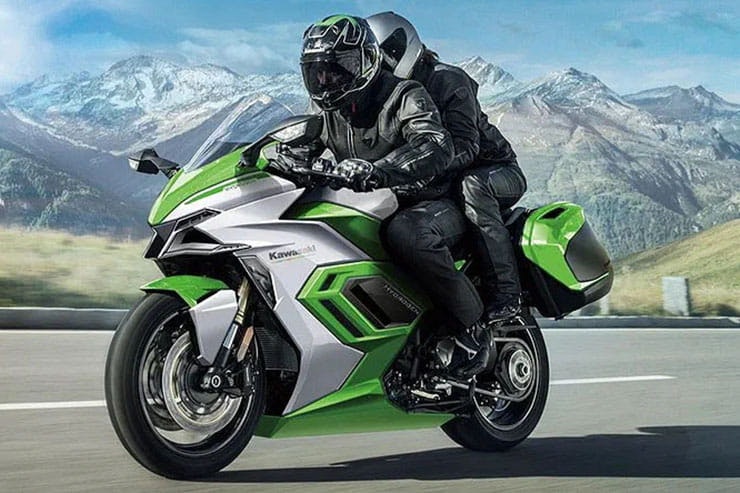Kawasaki joins forces with Toyota to invest in hydrogen power
Content and Features Writer
27.09.2022
Kawasaki and automotive giants Toyota have reportedly inked a major new deal that will see the Japanese powerhouses join forces in the pursuit of speeding up development of hydrogen-powered technology.
According to several sources in Japan, the two companies have come to an agreement that will result in a sharing of expertise in this nascent area in an effort to accelerate hydrogen’s application as a sustainable fuel, refine extraction methods and improve infrastructure.
The deal could mark a significant milestone for Kawasaki in its attempts to establish hydrogen as an alternative to electric power, currently the focus for the industry as it prepares to phase out fossil fuels.
Indeed, of all the mainstream motorcycle manufacturers, Kawasaki has been arguably the most proactive and communicative with regards to its model plans over the next 10 to 15 years, announcing at the 2021 EICMA show that it intends to electrify its entire range by 2035.
Leading the change will be its two alternatively powered motorcycles - a low capacity equivalent electric naked similar to the Z125 and a mid-size petrol-electric hybrid sportsbike - which are due to reach sale in 2023.
Already previewed as late-stage prototypes during a demo run at the Suzuka 8 Hours last month, the final products are expected to be revealed at the 2022 EICMA show.
However, while Kawasaki has taken the lead among the Japanese ‘Big Four’ in this area already, it has also been open about its plans to expand its research beyond electric and invest heavily in bringing a hydrogen-powered motorcycle to the road.
Compared with electric, hydrogen is considered a more convenient method of power that has the practical benefit of quick fill-up times while emitting zero emissions.
However, as it stands, hydrogen can only be extracted using expensive and environmentally-harming methods, contributing to consumer costs that are up to 9x higher than the price of charging an EV, while the infrastructure remains limited.
It’s why Kawasaki’s deal with Toyota - the world’s largest four-wheel automotive company with global sales of 10.1m cars in 2021 - is so significant as the companies work together to refine the current compromises so as to bring costs down and improve its network of use.
Indeed, Toyota already has a clear lead in the small but growing hydrogen segment, having already launched its first commercially available hydrogen-powered car - the Mirai - in 2015.
Now in its second generation, the Mirai is priced at just under £50,000 in the UK, or around £20,000 more than similarly sized 2.5-litre Camry four-door saloon. Though it remains a niche choice, sales of the Mirai have risen steadily over the years, with almost 18,000 units finding homes globally last year.
Share on social media:
